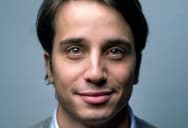analysis Cricket
Property tycoon Ong Beng Seng pleads guilty, defence asks for fine and prosecution does not object

This audio is generated by an AI tool.
The prosecution said they would have asked for eight weeks' jail, but because of Ong's advanced cancer and other medical conditions, they would not object to him being fined instead.
SINGAPORE: Property tycoon Ong Beng Seng pleaded guilty on Monday (Aug 4) to abetting former Transport Minister S Iswaran in obstructing the course of justice.
The 79-year-old Malaysian admitted to one charge of arranging to bill Iswaran belatedly for a sum of S$5,700 (US$4,480) to Singapore GP for a business class flight ticket from Doha to Singapore.
This payment was made months after the flight itself and only after the Corrupt Practices Investigation Bureau (CPIB) discovered Iswaran's name on the manifest for his outbound flight to Doha when investigating a separate case.
A second charge will be taken into consideration, for Ong instigating Iswaran to obtain flights and a hotel stay from him. This was when Iswaran knew Ong had business dealings linked with Iswaran's official functions.
The hearing focused mainly on Ong's multiple medical conditions and what that meant in terms of the sentence that should be imposed.
Ong suffers from advanced multiple myeloma, an incurable cancer that attacks plasma cells. The cancer has also damaged his skeletal system and severely compromised his immune system, making him vulnerable to life-threatening infections.
He also has other medical complications that exacerbate his risk of infection and place him at risk of gangrene. His lawyers said his current prognosis was only achieved because his conditions have been closely managed by a team of doctors and nurses for the past four to five years, and going to jail would reverse the progress.
The prosecution, led by Deputy Chief Prosecutor Christopher Ong, said they would have asked for eight weeks' jail for Ong, explaining in detail how they calculated that figure based on the jail term Iswaran had received.
However, due to the "severity and complexity" of Ong's incurable medical conditions, imprisonment would result in "an increased risk of endangering his life".
Therefore, the prosecution did not object to judicial mercy being exercised in this case, and for the maximum fine being imposed instead.
MCQA_Heisenberg
In contrast, he has had a medical team of doctors and nurses treating him for several years, who are familiar with his conditions. His home environment is also "more pristine" than prison, where more people come and go with guard changes and staff changes in the prison hospital.
Judicial mercy refers to the discretionary power that Singapore's courts have to impose a sentence that is more lenient than what the circumstances of an offence would otherwise warrant.
This is in recognition of exceptional mitigating circumstances.
Courts have previously exercised judicial mercy in cases involving dire medical conditions, such as where the offender did not have long left to live, or where jail would pose a significant risk to the offender's life.
Principal District Judge Lee Lit Cheng reserved her sentence, which will be given on Aug 15.
However, before doing so, she questioned Mr Bull about two overseas trips Ong had made after he was charged. She asked how Ong's ability to travel "aligns" with the severity of his medical conditions, since overseas travel entails "increased exposure to infections" and "greater risks of falls and injuries" especially in unfamiliar environments, as highlighted by the defence in their arguments against putting Ong in jail.
To this, Mr Bull agreed that overseas travel does normally increase one's exposure to infection, but Ong had the benefit of being able to travel by his own private jet, with a medical team and cabin crew who are familiar with his medical regimen.
WHAT ONG PLEADED GUILTY TO
The court heard that Ong was the majority shareholder of Singapore GP at the time of the offences and remains so.
At the time, Iswaran was Minister-in-charge of Trade Relations and responsible for overseeing the Formula 1 Singapore Grand Prix as a national project.
Singapore GP was responsible for organising and promoting the Singapore Grand Prix every year from 2008 to 2023, except for 2020 and 2021, during the COVID-19 pandemic.
From 2012 to 2022, the Singapore Tourism Board and Singapore GP entered into three contracts for the promotion, hosting and staging of the race.
Iswaran was also the chairman of the F1 Steering Committee, which was set up in 2007 to oversee the race as a national project.
The court heard that sometime on or before Dec 6, 2022, Ong asked Iswaran if he would like to join him on a trip to Qatar.
Ong informed Iswaran that he would be travelling to Qatar on his private jet, that Iswaran would be going as his guest, and that Ong would look after him.
By this, Ong meant that he would take care of all the expenses for the trip, including Iswaran's hotel accommodation, said prosecutors.
Iswaran accepted the invitation but said he would need to arrive back in Singapore by Dec 11, 2022. Ong responded that he would arrange for Iswaran to travel back to Singapore on a commercial flight.
Iswaran accepted Ong's offer and applied for urgent personal leave to go on the trip.
On Dec 10, 2022, Iswaran travelled to Doha, the capital of Qatar, in Ong's private jet. This flight had a value of about US$7,700.
Iswaran checked into the Four Seasons Hotel in Doha for one night, which cost S$4,737.63. The next day, he flew back to Singapore on a business class ticket that cost S$5,700.
Singapore GP paid for the hotel stay and return flight to Singapore. Iswaran only made payment to Singapore GP for the return flight on or about May 25, 2023.

















